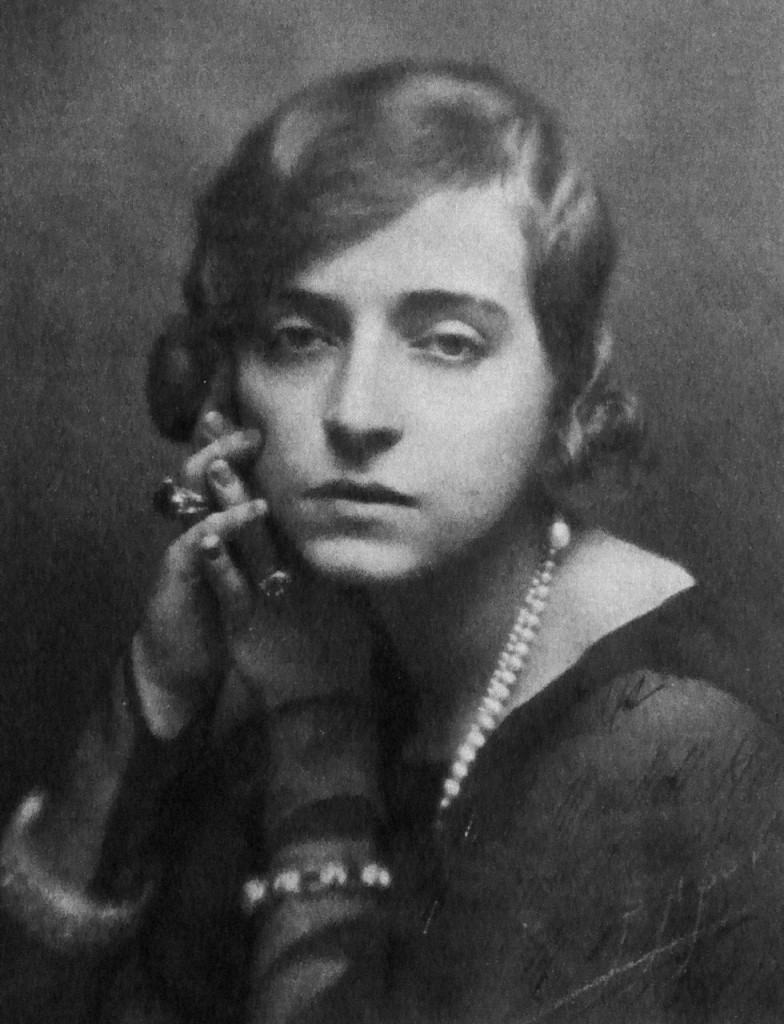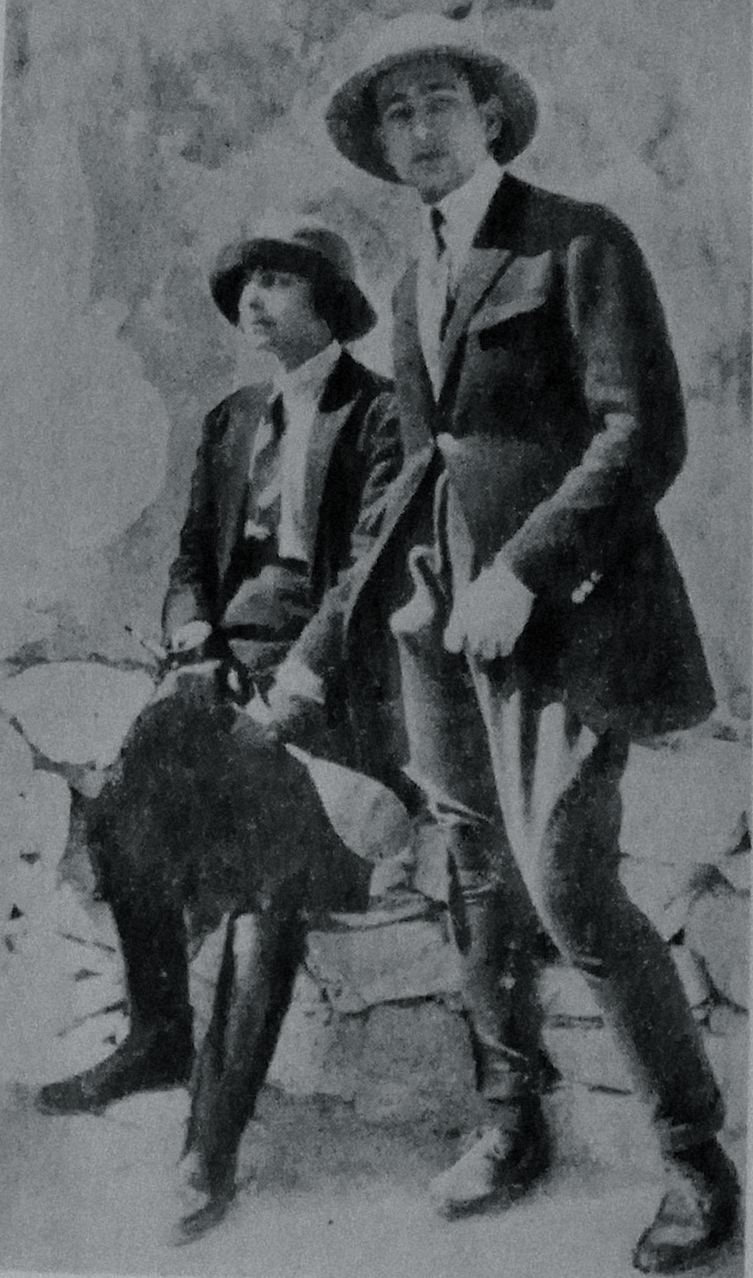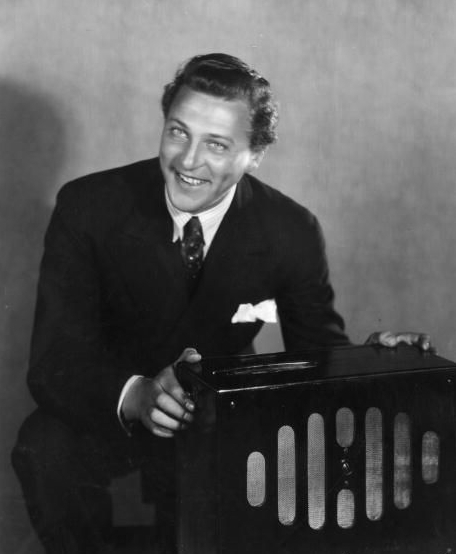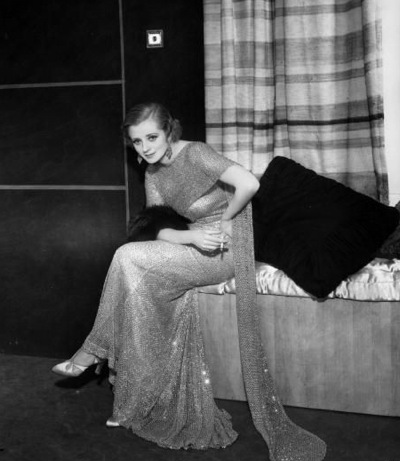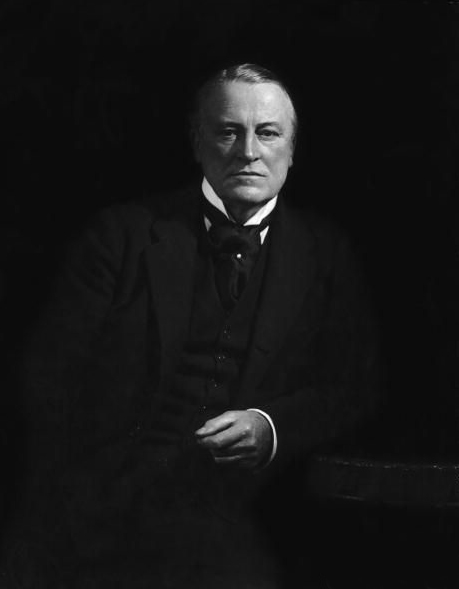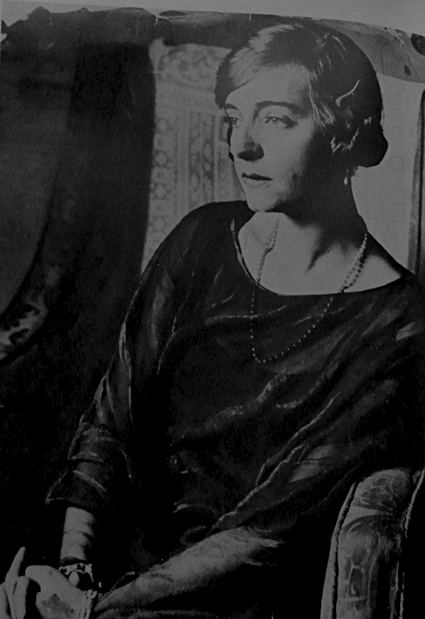“What have I done, my dear! What have I done!”
The two court cases were over seventy years apart and the LA suburb of Brentwood is a long way from the relative sophistication of London’s Savoy Hotel in the 1920s but when OJ Simpson was infamously acquitted in 1995, despite seemingly overwhelming evidence to the contrary, the shocked reaction around the world would not have been dissimilar to when Marguerite Fahmy was sensationally found ‘not guilty’ of the internationally reported murder of her Egyptian playboy husband at the hotel in 1923.
The Savoy Hotel had opened in 1889, and had been no stranger to scandal – it was at Oscar Wilde’s infamous trial where it came to light that he had entertained a succession of rent-boys at the hotel’s room 361. After Wilde had been arrested for gross indecency the presiding magistrate said “I know nothing about the Savoy, but I must say that in my view chicken and salad for two at sixteen shillings is very high. I am afraid I shall never supper there myself.”
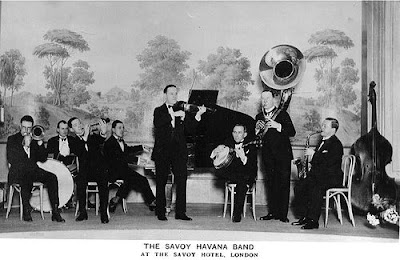 A typical dismal drizzly April in London that year had only been brightened by the wedding of Lady Elizabeth Bowes-Lyon to the Duke of York, Prince Albert – known as ‘Bertie’ to his family and close friends. The house band at the Savoy Hotel – The Savoy Havana Band – made its debut on the BBC on 13th April 1923, not least because the BBC at the time was next door and shared its generator with the hotel.
A typical dismal drizzly April in London that year had only been brightened by the wedding of Lady Elizabeth Bowes-Lyon to the Duke of York, Prince Albert – known as ‘Bertie’ to his family and close friends. The house band at the Savoy Hotel – The Savoy Havana Band – made its debut on the BBC on 13th April 1923, not least because the BBC at the time was next door and shared its generator with the hotel.
A few weeks later on the morning of Sunday 1 July 1923 a limousine drove into Savoy Court and the Hotel doorman helped out a couple who were known to the hotel as the Prince and Princess Fahmy. They were accompanied by the Prince’s private secretary, Mr Said Enani. Accurately Prince Fahmy wasn’t really a prince but he did little to discourage the use of the title when away from Egypt.
![]() Savoy Court – the only road in Britain where drivers are required to drive on the right.
Savoy Court – the only road in Britain where drivers are required to drive on the right.
The 22 year Egyptian had met his bride to be, a woman ten years his senior, in Paris the year before -incidentally the year that Egypt was granted independence, if not overall control, by the British Government. To many people Marguerite was seen, at best, as a flirtatious gold-digger and more in love with his not inconsiderable fortune than the man himself. They had married in Egypt, first by a civil ceremony on 26th December and then followed by a Muslim wedding in January 1923 where Madame Fahmy, modestly veiled, proclaimed in Arabic ‘There is one God and Mohammed is His Prophet’.
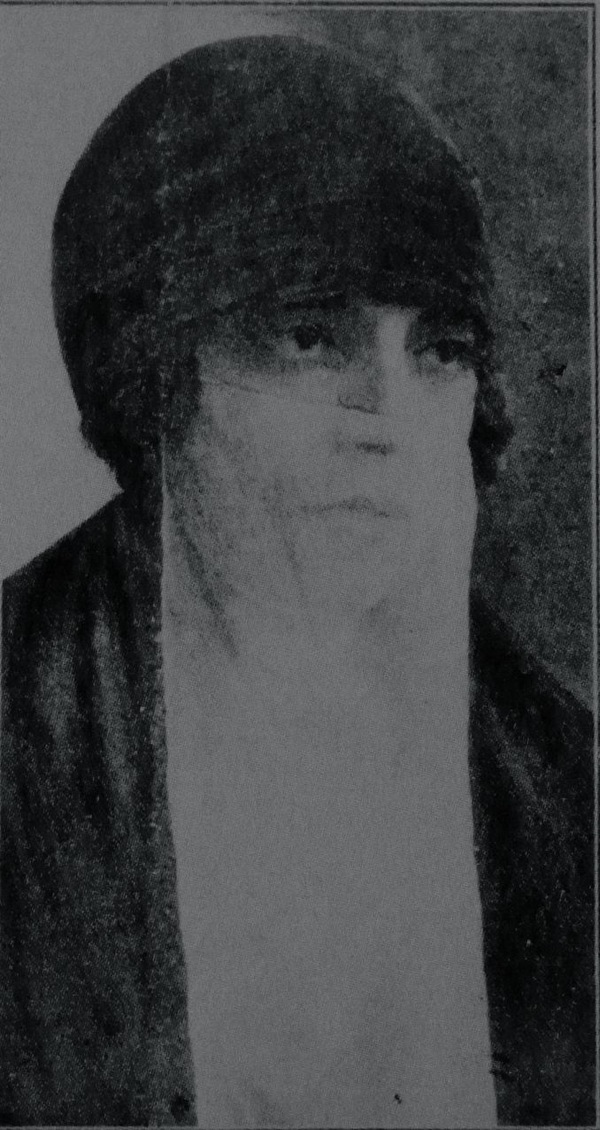
After a few days in London, which was experiencing a heatwave, Marguerite Fahmy summoned the Savoy’s doctor – she was suffering badly from external haemorrhoids. She alleged to Dr Gordon, while he was treating her, that her husband had ‘torn her by unnatural intercourse’ and was ‘always pestering her’ for this kind of sex. Already thinking about possible future divorce proceedings she repeatedly asked the doctor for ‘a certificate as to her physical condition to negative the suggestion of her husband that she had made up a story’. The doctor, although respectful, ignored her request.
On the 9th July the couple went to Daly’s Theatre on Cranbourne Street off Leicester Square (where the Vue West End cinema now stands) to see, with hindsight the darkly ironic ‘The Merry Widow’. It had been an incredibly hot day and you can only imagine how uncomfortably warm the theatre must have been in those pre-air-conditioned days (although as far as a lot of the West End is concerned we’re still in those days). Not the ideal conditions for someone suffering from piles I would imagine. The main performers in Lehar’s popular operetta were the 22 year old Evelyn Laye and the Danish matinee idol Carl Brisson.
The couple returned to the Savoy after the theatre for a late supper, however the meal was disrupted by a huge argument which had recently become almost a daily occurrence. Ali had even appeared in public with scratches on his face and Marguerite had been seen with dark bruises on her face ill-disguised with powder and makeup. The row this time degenerated to such an extent that Marguerite picked up a wine bottle and shouted in French ‘You shut up or I’ll smash this over your head.’ Ali replied ‘If you do, I’ll do the same to you.’ They eventually calmed down, not without the help of the head-waiter, and went to the ballroom to listen to the Savoy Havana Band. The house band no doubt would have been playing at one point Yes, We Have No Bananas or perhaps Ain’t We Got Fun both big hits that year. It wasn’t long before Marguerite, after refusing the offer of a dance with her husband, retired to her room.
At around 2.00am the hotel’s night porter passed the door to the Fahmy’s suite but heard a low whistle and looking back saw Ali Fahmy bending down apparently whistling for Marguerite’s little dog that had been following the night porter down the corridor. After continuing on his way for just three yards he suddenly heard three shots fired in quick succession.
He ran back and saw Marguerite throw down a black handgun and also saw Ali slumped against the wall bleeding profusely from a wound on his temple from which splinger of bone and brain tissue protruded. ‘Qu’est-ce que j’ai fait, mon cher?’ (what have I done, my dear?’) Marguerite kept saying over and over again.
Marshall Hall was almost 65 at the time of Marguerite’s trial and was a household name. He was six feet three, handsome for his age, and a commanding presence in the courtroom. He was commonly known, after being responsible for several famous acquittals, as ‘The Great Defender’. Marshall Hall’s final speech to the jury in defence of Marguerite, or Madame Fahmy as the press were now calling her, slowly became a character assassination of her dead husband. he portrayed him as a monster of Eastern amoral bisexual depravity. (Not too) subtly Hall accused both Prince Fahmy and his private secretary of being homosexuals.
The public gallery consisted of many young women some of whom were noted to be barely eighteen. Marshall Hall looked up to the gallery saying ‘if women choose to come here to hear this case, they must take the consequences’. None of them left. Meanwhile he turned the attack on Ali to sodomy. Fahmy, said Hall, ‘developed abnormal tendencies and he never treated Madame normally’ Asking them to disregard the fact that the victim was younger than his wife. ‘Yes, he was only 23 years old,’ he told them. ‘But he was given to a life of debauchery and was obsessed with his sexual prowess.’ He went on to remind them that, as an Oriental man, his wife to him was no more than a belonging and that however much he may have acquired the outward signs of urbanity and sophistication, he was forever an Oriental under the skin.


When Marguerite took the stand, she was encouraged by the Great Defender to describe her life as a Muslim bride and to a lot of observers this was when the case turned her way. She testified at one point how she had been sitting ‘in a state of undress in which her modesty would have forbidden her facing even her maid’, she had noticed a strange noise and she pulled aside the hangings that screened an alcove and ‘saw crouching there, where he could see every move she made, one of her husband’s numerous ugly, black, half-civilized manservants, who obeyed like slaves his every word’. She screamed for help, but when her husband, appeared from an adjoining room he only, laughed, saying that “He is nobody. He does not count. But he has the right to come here or anywhere you may go and tell me what you are doing.”
It was like a scene from Rudolph Valentino’s The Sheik, the extraordinarily popular film released the year before, and the women in the gallery were treating it as such.
Before he summed up, the judge, referring to the public gallery said, ‘These things are horrible; they are disgusting. How anyone could listen to these things who is not bound to listen to them passes comprehension.’ However he had been swayed by Marshall Hall’s defence, that pandered to the prejudices of the tie, and during the summing up endorsed Marshall Hall by saying ‘We in this country put our women on a pedestal: in Egypt they have not the same views…’
The jury, after less than an hour’s consideration, announced ‘not guilty’ to both the charges of murder and of manslaughter, and Madame Fahmy was discharged and was now a free woman.
The prosecution was refused by the judge, seemingly in awe as much as anyone else to the Great Defender, to cross-examine Marguerite ‘as to whether or not she had lived an immoral life’, to show that she was ‘a woman of the world, well able to look after herself’.
If she had been cross-examined properly the jury would have found out that not only had Marguerite been a teenage common prostitute in Bordeaux and in Paris and had an illegitimate daughter when she was just fifteen, but she had also become a trained high-class courtesan (it was said that she always spoke in a rather stilted French because of elocution lessons). Not only that but Marguerite’s husband was not alone in having inclinations towards the same sex: it was found out by a private detective hired by the prosecution that it was well known in Paris that Madame Fahmy “is addicted, or was addicted, to committing certain offences with other women and it would seem that there is nothing that goes on in such surroundings as she has been moving in Paris that she would not be quite well acquainted with…”

The world’s press reported the case with undisguised glee, mostly portraying Mardame Fahmy as less than innocent in more ways than one. The French newspapers concentrated on the fact that the jury considered the case as if a crime passionnel defence was allowed in English law.
After the verdict Marguerite soon left for Paris where she found out that she had no claim to her late husband’s fortune as he had left no will. After a failed, and slightly ludicrous plot where she pretended that she had been pregnant and subsequently borne a son (who would have been entitled to his father’s fortune). She was now almost a laughing stock in Parisian society and became relatively a recluse. She died on 2 January 1971 in Paris. She never remarried.
A big debt to this post is Andrew Rose’s excellent book about the notorious murder entitled Scandal at the Savoy originally published in 1991. The author has copies still available and can be contacted at andrewroseauthor@googlemail.com.
Billy Jones – Yes, We Have No Bananas!
The Savoy Havana Band – I’m Gonna Bring My Girl a Watermelon Tonight
Louis Armstrong, King Oliver and Bessie Smith – Sugarfoot Stomp (Dippermouth Blues)
Jeanette MacDonald – Merry Widow Waltz
Paul Whiteman’s Orchestra – Happy Feet
